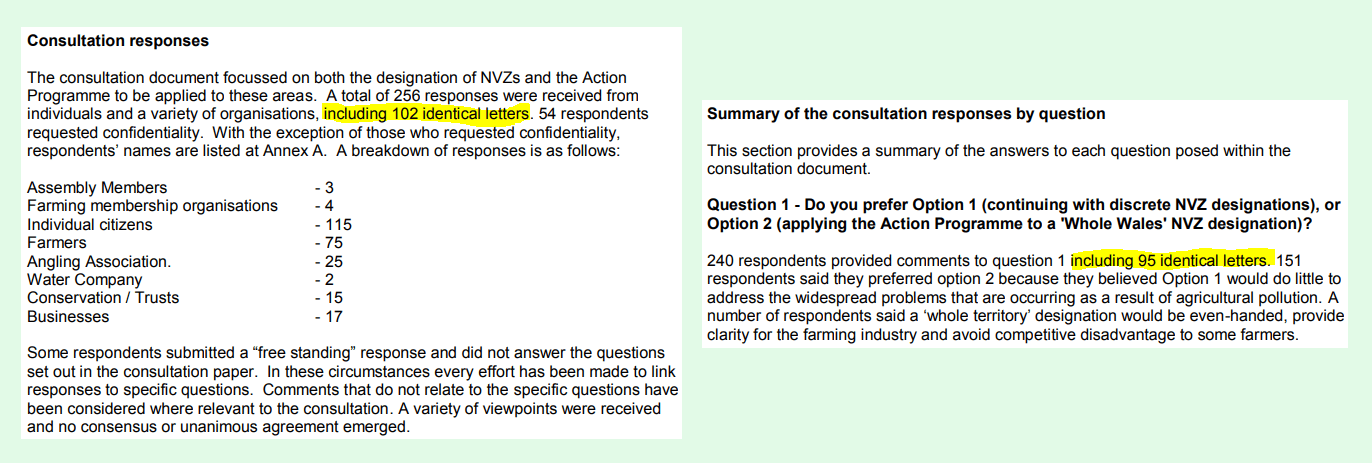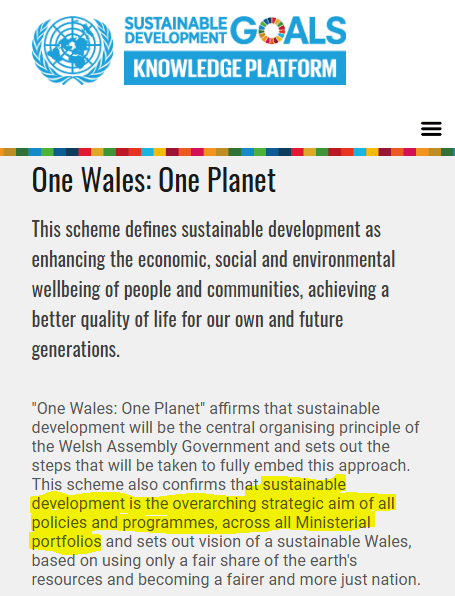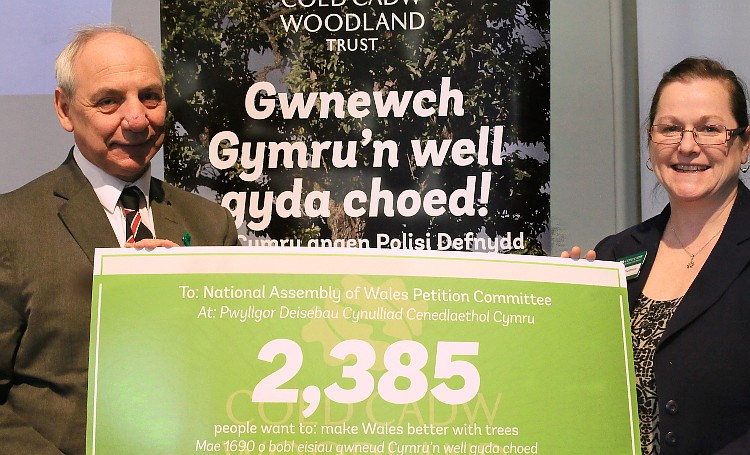PLEASE APPRECIATE THAT I GET SENT MORE INFORMATION AND LEADS THAN I CAN USE. I TRY TO RESPOND TO EVERYONE WHO CONTACTS ME BUT I CANNOT POSSIBLY USE EVERY BIT OF INFORMATION I’M SENT. DIOLCH YN FAWR
♦
![]() In recent years I’ve written a few articles – too many to list here – about the unrelenting assault on Welsh farming and rural life. A campaign that sees Welsh politicians used as puppets by senior civil servants serving interests other than those of Wales and Welsh people.
In recent years I’ve written a few articles – too many to list here – about the unrelenting assault on Welsh farming and rural life. A campaign that sees Welsh politicians used as puppets by senior civil servants serving interests other than those of Wales and Welsh people.
This post is in the form of an update.
◊
THE GATHERING STORM
Arraigned against our farmers are politicians in London of assorted political hues, left-‘Green’ politicians in Corruption Bay, civil servants linking Westminster and Whitehall with Cardiff docks, and land-grabbing ‘environmentalists’ who tend to be either strident memsahibs or darlings of the Guardianistas.
Last week, during a Skype-enabled session of the Senedd, Lesley Griffiths AM, the Minister for Environment, Energy and Rural Affairs – working on the principle that a pandemic is a good time to slip out bad news – announced the release of Draft Water Resources (Control of Agricultural Pollution) (Wales) Regulations 2020.
The timing certainly surprised and angered our farming unions. National Farmers Union Cymru was ‘astonished’, while the Farmers Union of Wales agreed that the proposals are ‘draconian’.

Now on the one hand, we all want cleaner water. But it looks as if Ms Griffiths and her friends have been over-zealous in their attempts to give us crystal clear rills, rivers we can cross by walking on the backs of spawning salmon, and lakes home to old slappers catching the swords that are regularly chucked in.
But on the other hand, we don’t want to drive farmers out of business using sly and underhand methods. Well, I don’t, but there are some who do, and Ms Griffiths is an ally of theirs, possibly no more than a tool.
In both statements you will see reference to Nitrate Vulnerable Zone (NVZ). This term is used to describe areas, “that contain surface water or groundwater that is susceptible to nitrate pollution from agricultural activities”.
The percentage of Welsh land designated NVZ currently stands at 2.4% (750 farm holdings) and there was an understanding that the percentage would increase – Natural Resources Wales recommended 8% – but Ms Griffiths has proposed that the whole country becomes a NVZ. (So you’ll understand the response of the farming unions.)
A NVZ consultation process launched by the ‘Welsh Government’ 29 September 2016 ended 23 December 2016, with the findings being published just over two years ago. You can read the ‘summary of response’ here.
A flick through those responses makes it clear that farmers’ bodies were outnumbered by angling clubs and environment groups, a number of them Englandandwales bodies. (I’m thinking here of the National Trust, the RSPB, Marine Conservation Society and the Angling Trust.) And the way the responses came in suggest that members and supporters were whipped into line.

One question considered the effects of an All-Wales NVZ on the Welsh language. There was a majority view that enforcing an All-Wales regime would be damaging to the Welsh language because the (often unnecessary) expense involved could prove too much for the smaller family farm. But in the very last paragraph we read:
“One respondent who agreed with the question thought language should not be a fundamentally important factor in any new regulations. However, it was essential that a Welsh identity was maintained through clean waters and a beautiful countryside.”
So there you have it. Remove Welsh-speaking farming families and Welsh identity will be perpetuated by the water nymphs and sword-catching slappers to which I heretofore alluded.
But I repeat, I want to see clean rivers and lakes; it’s just that I believe this can – and must – be achieved without waging war on the farming community. Which is what it seems motivates Ms Griffiths and her pals, using the findings of a consultation process skewed by those with many years experience in such dark arts.
This proposal to extend NVZ must not be looked at in isolation, for it is part of a wider strategy to ‘discourage’ traditional farming and open up the Welsh countryside to new ideas . . . and a new population.
The assault began in May 2009 with the publication of ‘One Wales: One Planet’. This is what the UN had to say about it:

Which means that pleasing a few thousand hippies and eco-fanatics was seen to be more important than providing an economy, a health service, an education system an infrastructure, and all the other things needed by three million people.
And remember! in 2009 Wales was managed by a Labour-Plaid Cymru coalition.
‘One Wales: One Planet’ led, in October 2012, to the ‘Welsh Government’s Technical Advice Note (TAN) 6, which allowed One Planet Developments. A measure intended to attract hippies into Wales and allow them to build what they like, wherever they choose; with local planning authorities forced to give them planning permission, often retrospectively.
Wales is the only country in the world to have enacted this hippies’ charter.
Next, in December 2013, we saw Alun Davies, then Minister for Natural Resources and Food (therefore Ms Griffiths’ predecessor) transfer 15% of EU Common Agricultural Policy funding from Pillar 1 to Pillar 2. In practice, this saw £286m taken from farmers and allocated to rural development projects.
No prizes for guessing what ‘rural development projects’ means, and who benefits.
Fifteen per cent was the maximum permitted by the EU and the ‘Welsh Government’ showed its attitude to farmers by going for broke.
Then we had the Well-being of Future Generation Act (Wales) Act 2015 promising sunshine, lollipops and roses . . . and cushy jobs for Labour Party cronies. Such as the first Future Generations Commissioner herself. Sophie Howe is the daughter of a former Cardiff Labour councillor, and previously worked for Alun Michael, erstwhile Labour MP and now South Wales Police and Crime Commissioner.
No other country entertains anything like this bullshit.
More recently we have seen the arrival of the memsahibs and the Monbiots demanding huge swathes of our homeland in which they can play silly buggers. I’ve dealt with this in The Welsh Clearances of 16 October 2018 and a number of times since. Just type ‘rewilding’ or ‘Summit to Sea’ in the search box on top of the sidebar to find these further contributions.
And to cap it all, we have recently seen outbursts from ‘trendy metropolitan eco-zealots’ and swivel-eyed advisers to Boris Johnson promoting the same idiocies.
◊
ÉMINENCE GRISE
There is is no question that influencers have been working on the ‘Welsh Government’ for a decade or more, and they have tended to be men with little understanding of or sympathy for farming, and very often a poorly concealed hostility towards Welsh farmers.
We should not be surprised therefore that through the malign influence of this cabal Welsh farming has been weakened by one cut after another, to the advantage of the hippies, the memsahibs and the Monbiots.
They always encourage legislation against farmers, nothing is ever done for farmers.
Most of those I’m referring to have been mentioned in previous blog posts, but now I want to focus on one who has been rather overlooked, Gary Haggarty. No, this is not Gary Haggarty, the UVF killer and supergrass, but Gary Haggarty, former Rural Director for the ‘Welsh Government’.

But more importantly, Haggarty is the partner of Lesley Griffiths, the Minister for Environment, Energy and Rural Affairs in the ‘Welsh Government’. Their affair was kept secret for quite some time but has been widely known about for at least a year.
Haggarty has form, for he is said to be the genius behind the decision to take money off farmers with the 2013 ‘Pillars’ decision.
Responsibility for replacing of the Tir Mynydd scheme with the unpopular Glastir arrangement is also laid at his door. Glastir tends to regard traditional Welsh farming as just another rural activity, little different to organic hobby farming. Which of course fits perfectly with the overall strategy.
When Brexit came along Haggarty saw another weapon he could use and he rolled it out with the September 2018 consultation document, ‘Brexit and our land: Securing the future of Welsh farming’. The second element in that title is quite insulting considering what we know about Haggarty’s attitude to farming and farmers.
The ‘Welsh Government’s response to the results of the consultation process is contained in this document.
A further publication in July 2019 was ‘Sustainable Farming and our Land’, which was described by its ‘author’, Lesley Griffiths, as ‘revised proposals’ following the responses received to the ‘Brexit and our land’ consultation, also ‘authored’ by Griffiths.
Or were they, because of course the Minister for Environment, Energy and Rural Affairs was in a relationship with a man on a mission to bring Welsh farmers to heel? And so I have no doubt that he wrote most of what appeared in these publications. And she was happy to let him do it.
Which means that a man with not a single democratic vote to his name is dictating policy to the wretched and useless ‘Welsh Government’. And Gary Haggarty is not the only one.
So much for devolution!
This relationship was known about in Cardiff Bay for a long time, but Haggarty was only reassigned when it became public knowledge. Yet the relationship was improper whether it was public knowledge or not. They should have been separated, professionally, as soon as the affair became known about.
◊
BEST OF FRIENDS
As I say, the relationship between Griffiths and Haggarty is now out in the open, as shown by the image below, taken in a Dublin bar on 8 February, the day of the Ireland v Wales rugby international.
On the left we see the happy couple, and on the right, Elin Jones, the Plaid Cymru AM for Ceredigion and Llywydd (Speaker) in the Senedd. And is that Llais y Sais columnist Carolyn Hitt behind Jones? If so, what’s a nice girl like her doing there?

You could say that seeing Labour and Plaid Cymru politicians sharing a convivial jar in a Temple Bar pub shows how civilised Welsh politics is. Not really.
Could you imagine Elin Jones sharing a Guinness with Andrew R T Davies, or his successor, Paul Davies? Or enjoying a snifter and a risqué joke with Mostyn? (Neil Hamilton, to you.)
And if Neil McEvoy had walked through the door Elin Jones would have screamed, switched off his microphone, summoned the gardaí and demanded that they drag him off to Kilmainham to be summarily executed.
Let Uncle Jac interpret that photograph for you. What it says is this: In next year’s Assembly elections Labour will fall well short of a majority of seats, consequently its only hope of staying in power lies in a coalition with Plaid Cymru. Therefore a vote for Plaid Cymru in 2021 will be a vote for Labour.
So don’t be fooled by the playful sparring you’ll see in the election campaign. It’s only done to fool mug punters. Don’t you be one of them!
Something else that strikes me is that Elin Jones, from a farming background, has no problem socialising with people inflicting so much pain on Welsh farming. A testimony to the amnesiac qualities of the Cardiff Bay air.
Or possibly Deryn Consulting.
◊
AND, FINALLY . . .
There was a piece of good news for our farmers last week. And unwelcome news for those wanting to displace them. For that’s where we’re at: two sides, one still in possession of its ancestral land, and the other prepared to use all manner of tactics to take possession.
This is semi-naked colonialism, with native ‘friendlies’ who have jumped into bed with the enemy justifying their treachery by pretending it’s done for the greater good of saving the planet.
The news I’m referring to is that academics conclude that planting trees everywhere, which is what many of the would-be ethnic cleansers advocate, would do more harm than good for the environment.
“The report comes from the Natural Capital Committee (NCC), which says planting trees into peat bogs would prove a serious mistake.”
But don’t worry, for those pulling Lesley Griffith’s strings will still want wind turbines plonked on peat, to cause flooding and other problems – and it will all be done in order to save the planet!
Left to these people, Welsh identity itself will be destroyed . . . to save the planet. Gesture politics all the way.
Devolution does not work for us Welsh. Devolution benefits a colonial management class that just rubber-stamps decisions made by strangers acting against the Welsh national interest. We must move on to independence and reclaim our country from both our external enemies and their internal allies.
♦ end ♦
UPDATE 16.04.2020: Conservative MPs from Wales have written to Lesley Griffiths condemning her treatment of Welsh farmers over NVZ. (Did they also send Gary a copy?) Will Plaid Cymru also defend our farmers, or will they side with their Labour friends? (Available here in pdf.)








